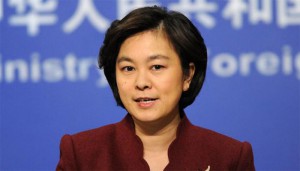China says NSG still divided,Seoul meeting too early for India’s entry
 BEIJING(China): on Monday said differences remain among NSG members over the inclusion of new countries and the issue was not even on the agenda of the grouping’s meeting in Seoul this week, a day after External Affairs Minister Sushma Swaraj asserted that Beijing was not opposing India’s entry.
BEIJING(China): on Monday said differences remain among NSG members over the inclusion of new countries and the issue was not even on the agenda of the grouping’s meeting in Seoul this week, a day after External Affairs Minister Sushma Swaraj asserted that Beijing was not opposing India’s entry.
“We have stressed that the Nuclear Suppliers Group (NSG) is still divided about non-NPT countries entry into the NSG and under the current circumstances we hope that NSG will make through discussions to make a decision based on consultation,” Chinese Foreign Ministry spokesperson Hua Chunying told a media briefing.
Answering questions about Foreign Secretary S Jaishankar’s visit here on June 16-17 and Swaraj’s remarks, Hua said India’s admission into NSG is not on the agenda of the Seoul meeting of the 48-member elite club to be held on June 24.
“As we understand the annual conference in Seoul this year also has no such topic. We understand that non-NPT countries are concerned about their entry into the NSG. But since NSG is still divided about the issue, so it is still not mature to talk about the entry issue in the annual conference in Seoul,” she said.
“I want point out that the NSG agenda has never covered any issue concerning the non-NPT countries joining the NSG,” Hua asserted. Her remarks came even as Swaraj had on Sunday said that India was confident of getting NSG membership this year.
“China is not opposing membership of India in NSG, it is only talking of criteria and procedure. I am hopeful that we would be able to convince China as well to support our entry to the NSG,” she told a press conference.
“I think that there is a consensus which is being made and I am sure that India will become the member of the NSG this year,” she had said.Hua said, “China maintains that NSG should have through discussion on the joining of the non-NPT countries in a way agreed by all parties, so as to make a decision based on agreement. This position is not directed against any country and applies to all non-NPT states,” she said.

